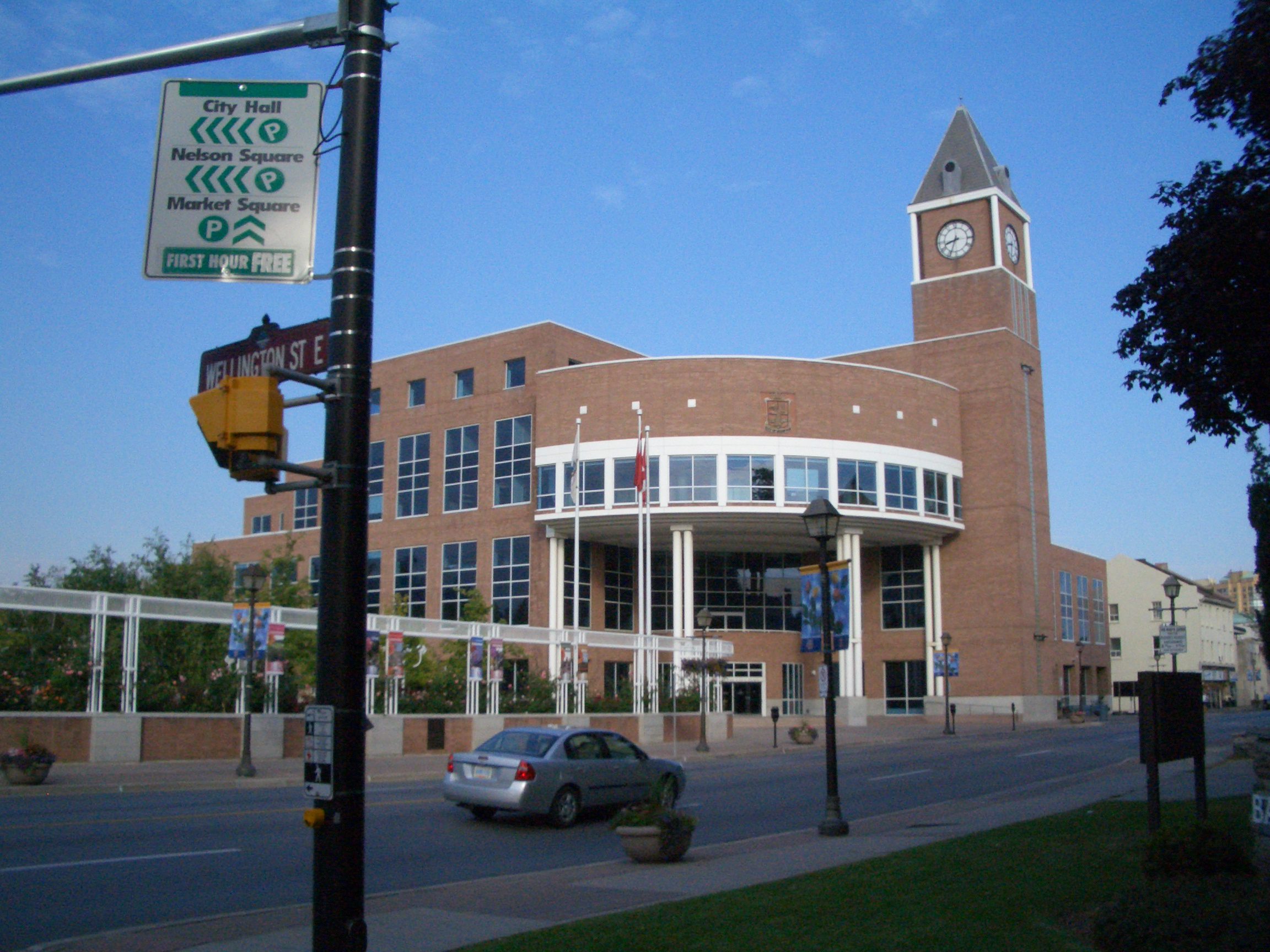Guelph Mercury editor Philip Andrews didn’t know what to expect when he stepped out of the building into the cold winter air the day before the 149-year-old newspaper was to close. But it certainly wasn’t the large crowd standing before him and his news team, clapping and cheering as snowflakes the size of toonies drifted to the ground around them.
“There are periods in your life where you kind of feel like you’re acting in a movie,” Andrews said. “I felt that way after my kids were born, or you know, on [my] wedding day.” He had that same feeling as he looked around at the scene unfolding in front of him on Jan. 28, 2016.
The Mercury alumni and community members had just finished hugging the building when Andrews stepped out with members of his newsroom staff. They watched as someone from the crowd, acting as a town crier, recited a poem about news by John Galt, the founder of Guelph, Ont.
“There wasn’t a set agenda and this organic people moment just happened,” Andrews recalled.
As the poem came to an end, a call went out for the news staff to gather. Andrews and his team came together to take a bow on the front landing of the Guelph Mercury building. The newspaper’s general manager made a spontaneous speech thanking the Mercury’s readers. Then Andrews, holding back tears, told the crowd how grateful he was to have served the residents of Guelph.
Andrews and his team mingled with people afterwards. After lots of tearful goodbyes, editors and reporters returned to the newsroom to put the last issue of the paper to bed.
The crowd outside, however, wasn’t yet done. People wrote farewell messages on sticky notes and stuck them to the front door of the building, fully wallpapering it with reminiscences and condolences.
“It was history in the making and it wasn’t a terrible moment,” Andrews said. “It was an uplifting one. It was an informal, honest and emotional kind of farewell.”
A few days earlier, the TorStar-owned Metroland Media Group announced the Mercury’s closure, citing financial strains and declining readership.
“It’s ironic – the paper didn’t do well enough on a spreadsheet to remain but it certainly had a coterie of people who immensely appreciated the importance of doing local news service that the Mercury provided,” Andrews said.
The health of Guelph’s local news environment, he added, has suffered as a result of the closure. The city of more than 130,000 residents has one hyperlocal newspaper left: the Guelph Mercury Tribune, a twice-weekly community paper.
“The big deficit that I see is something of an absence of that inch-wide, mile-wide beat kind of reporting or the agenda setting reporting,” Andrews said in a recent interview, noting that he hasn’t seen a local story based on a freedom of information request since the Mercury’s closure.
“Doing good, deep, rich journalism takes time and daily newspapers had the staff and the inclination to do that almost as part of their identity and the value proposition that they had in terms of serving their communities.”
Guelph’s remaining media outlets now are “seeking to provide immediacy and doing a good job at that,” he added. But “in terms of that type of reporting that afflicts the comforted and comforts the afflicted – original reporting that isn’t just off what the institutions are seeking to have you look into – that isn’t there so much and that’s a problem for [the] community.”
Newspaper closures, however, aren’t unique to Guelph. When a daily newspaper serving Brampton, Ont. for 122 years closed in 1989, it left the growing community that is now home to nearly 600,000 people with only one newspaper, the Brampton Guardian, that publishes three times a week. Communities like Toronto, on the other hand, have multiple digital outlets, dailies and weeklies serving more than 2.7 million people.

